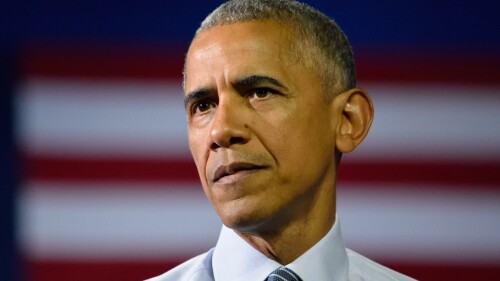Walid Phares is professor of Middle East studies at Florida Atlantic University and a senior fellow at the Foundation for the Defense of Democracies. Born and raised in Lebanon, he earned his Ph.D. from the University of Miami. He is widely published in scholarly journals, including the Middle East Quarterly, where he has written about Lebanon and Middle Eastern minorities, and is a regular commentator on terrorism and Middle East issues on MSNBC. He addressed the Middle East Forum in Philadelphia on May 19, 2005.
Prior to 9/11, the Wahhabi/Islamist/Arabist lobbies led by the Saudis in Washington were able to vouch for Syrian hegemony in Lebanon and perpetuate the Syrian occupation. These lobbies protected the interests of Arab/Muslim dictatorships in the Middle East, essentially quashing pro-democracy movements like that in Lebanon. After 9/11, however, the dynamics of these lobbies shifted. The Saudis needed to focus their complete attention on protecting their own interests, specifically in defending their alleged alliance with the United States. As a result, lobbying efforts to the U.S. Congress on behalf of the Syrian occupation in Lebanon terminated. This consequence, coupled with the general U.S. interest in all things related to the Middle East and terror that sprang up after 9/11 paved the way for the pro-Lebanese democracy movement to effectively speak out against the Syrian occupation regime which is also a state sponsor of terror.
The second significant event that helped bolster the Cedar Revolution was the U.S. government’s Syria Accountability Act, which aimed to pressure the Syrians to end their occupation of Lebanon.
The third event was the regime change in Iraq that began in March 2003. After the liberation of Iraq, a delegation representing thousands of Lebanese around the world started lobbying for change in Lebanon in March 2004. In addition, groups in Lebanon that did not support Baathists-- such as the Sunnis and Druzes--viewed the fall of Saddam’s Baath regime as an opportunity to rally against Asad’s Syrian Baath regime. The Iraqi vote in January 2005 then gave the pro-democracy movement within and without Lebanon tremendous encouragement. If democracy could take hold in Iraq, why not in Lebanon?
Finally came the assassination of Rafik Hariri in 2005. Hariri, a former ally of Syria, had distanced himself from the regime and started campaigning on behalf of democratic reform. His assassination, which is surely linked to a Syrian plot, was a last effort by the regime in Damascus to maintain its hegemony in Lebanon and also sabotage democracy from taking hold in the region. The Assad regime has, for example, been active in the campaign of promoting anti-American sentiment in the Middle East by aiding the insurgency against American troops in Iraq. The Syrians fear that democracy in Iraq, Lebanon, or in the region as a whole will put tremendous pressure on the Baath dictatorship to undergo democratic reforms of its own.
But the Hariri assassination backfired, inadvertently placing tremendous pressure on the Syrian regime to withdraw from Lebanon. Following the killing on March 14, 2005, the Lebanese people held the largest pro-democracy rally ever in the Middle East, drawing worldwide attention to their cause. In sympathy with Lebanese democratic interests, the U.S., France, and Britain set an April 30, 2005, deadline for Syrian withdrawal from Lebanon. Twenty days before that deadline, these states sent five war vessels through the Suez Canal to scare Syria away from the idea of not adhering to its demand. Consequently, the Syrians officially withdrew from Lebanon by the deadline.
Despite this breakthrough by a pro-democracy coalition in Lebanon, its fight against Syria is not over. Although Syria withdrew its official army, it kept in place its unofficial army, typified by the Islamist Hezbollah in southern Lebanon and other Syrian intelligence manifestations. These elements will seek to block the efforts of democratic reform. Furthermore, the former Syrian dictator, Hafez al-Asad, signed an agreement in 1991 with Lebanon giving the Syrian army the right to reoccupy Lebanon following a withdrawal in the event that a Lebanese government supports Syrian occupation. This agreement may be used in the future by Damascus to block developments in Lebanon.
The Cedar Revolution depends on the new Lebanese political establishment. If the Lebanese politicians truly want to promote democracy, they will take steps to disarm Hezbollah and cut ties with the former Syrian occupation regime. If these measures are not taken, backsliding could well take place.





